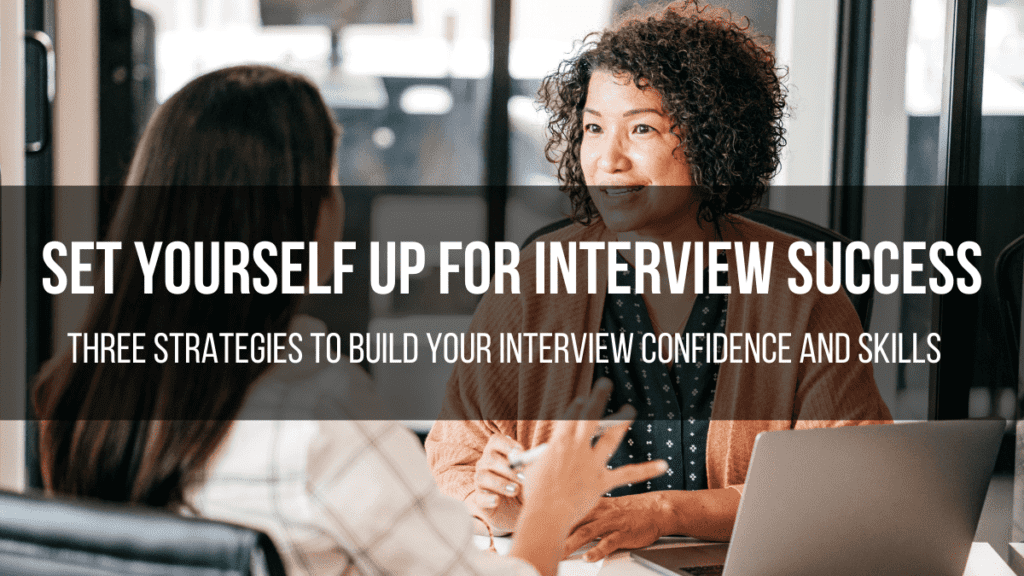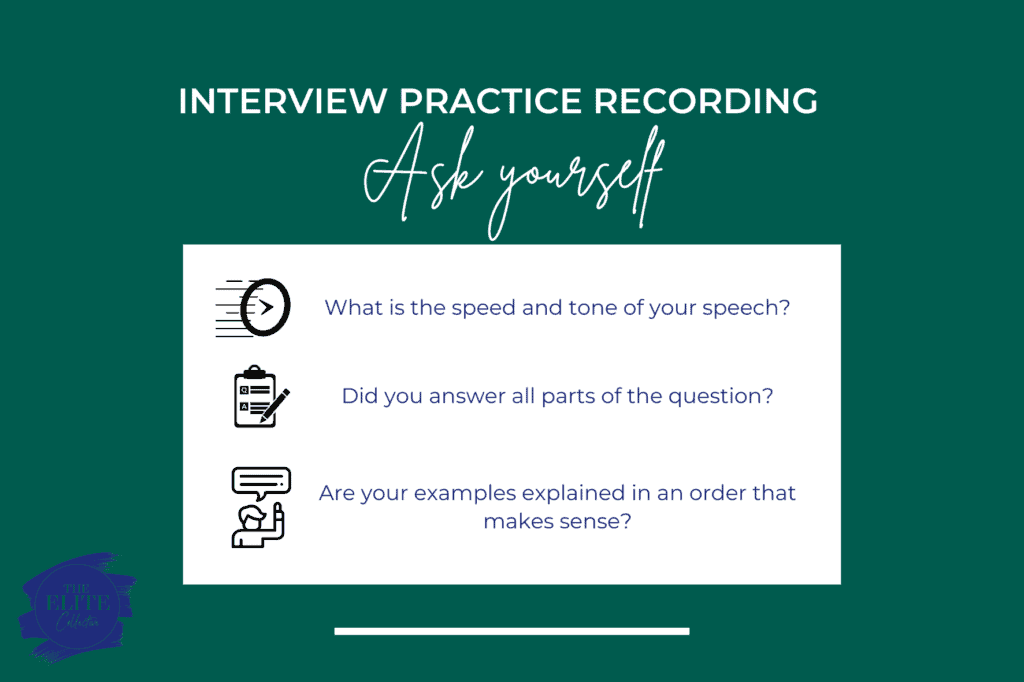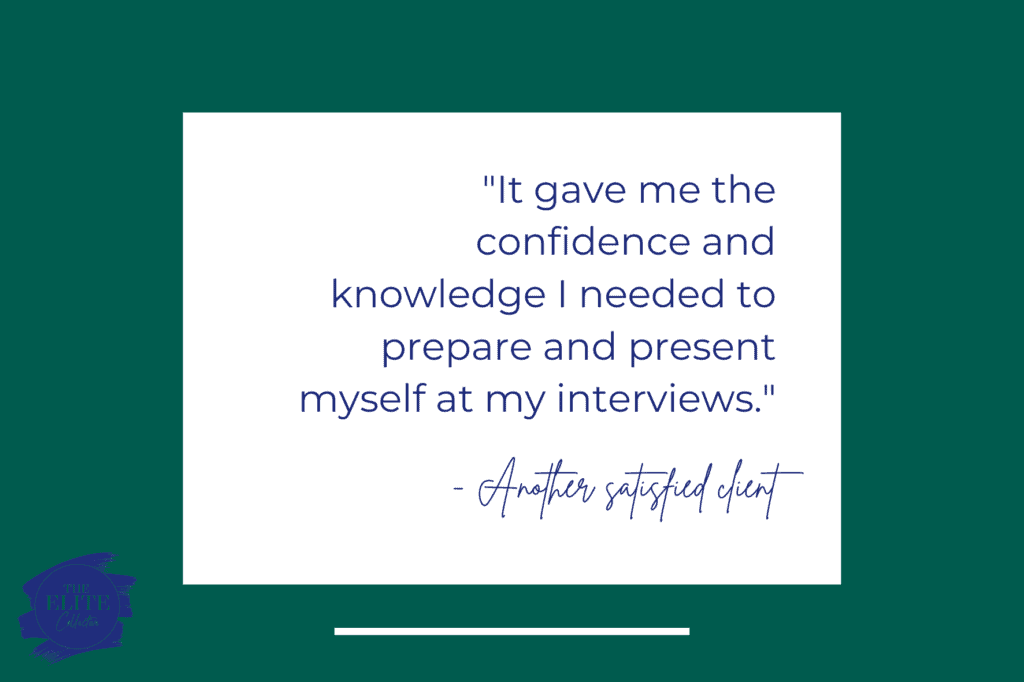 Danielle Bejr
Danielle Bejr

Feeling nervous before an interview for a job you are excited about is a very common reaction, and an experience that most of us have had at least once! Creating a positive mindset, preparing for the interview and practising your communication skills are different tips and tricks that will build your confidence for your next interview.
At Elite, our goal is to help you feel calmer, better prepared and ready to smash your next interview – so check out our top three strategies to set yourself up for success!
Feeling stressed before an interview is not a bad thing. Athletes capitalise on stress to perform better, and you can do the same thing before an interview by thinking about your mindset. We recently covered mindset in-depth in a free masterclass, and have broken down the basics into a few questions for you to reflect on before your next interview:
Is this a one-sided interview or a meeting? Interviews are often thought of as one-side conversations where a panel or interviewer asks questions about your skills and experience. However, an interview is also your opportunity to evaluate your potential employer. Using your interview as a time to ask questions about the workplace culture, flexible work practices, or employee community groups will help to make the interview feel more like a meeting. My personal favourite is to ask each interviewer what is one thing they enjoy and one aspect they would change about the company’s culture!
Reading through the details and documents on the job advert is a quick way to identify the essential responsibilities and objectives of the role. For most government positions, you can also refer to the leadership or competency framework that outlines the expectations of each job level. Once you write the key topics down, we recommend listing the skills you need to fulfil the position.
Then, think about where you have demonstrated or could transfer skills from a past job and write down those examples. Those examples will become your answers to behavioural and situational questions about how your skills will suit this role you’ve applied for.
And don’t be alarmed if you find that you don’t have 100% of the skills needed for the job. If you are confident that you can leverage past experiences and are willing to complete training to learn new skills, apply for the job anyway – and you might be surprised at the result!

Recording yourself practising answering interview questions on your phone can feel super awkward. Still, it is one of the best ways to check that your interview responses are informative and engaging. When you watch your practice recording, consider both what you say and how you say it using these prompts:
Post-covid, more interviews than ever before are being conducted using video conferencing. To have the create the best environment for your online interview, we recommend:
If you’ve found this information helpful and would like further one-on-one support for your next interview, we’d love to complete an individually-tailored Interview Coaching Zoom Session with you!

No matter whether you are a graduate, professional, manager or senior leader, don’t forget to gain the upper hand in your next interview by learning how to answer the dreaded first interview question, “Tell me about yourself”.
Our team of professional resume writers are located across Australia, specifically in Canberra, Melbourne and Sydney. We have clients throughout Australia who rave about our professional resume writing services, job application support and interview coaching. Get in touch with us today, and make your next career move with the support of a team of professionals.
We respectfully acknowledge the traditional custodians of the land upon which we live and work, the Ngunnawal people.
We acknowledge and respect their continuing culture and the contribution they make to the life of this city and this region, and extend that same respect to all Aboriginal and Torres Strait Islander people.